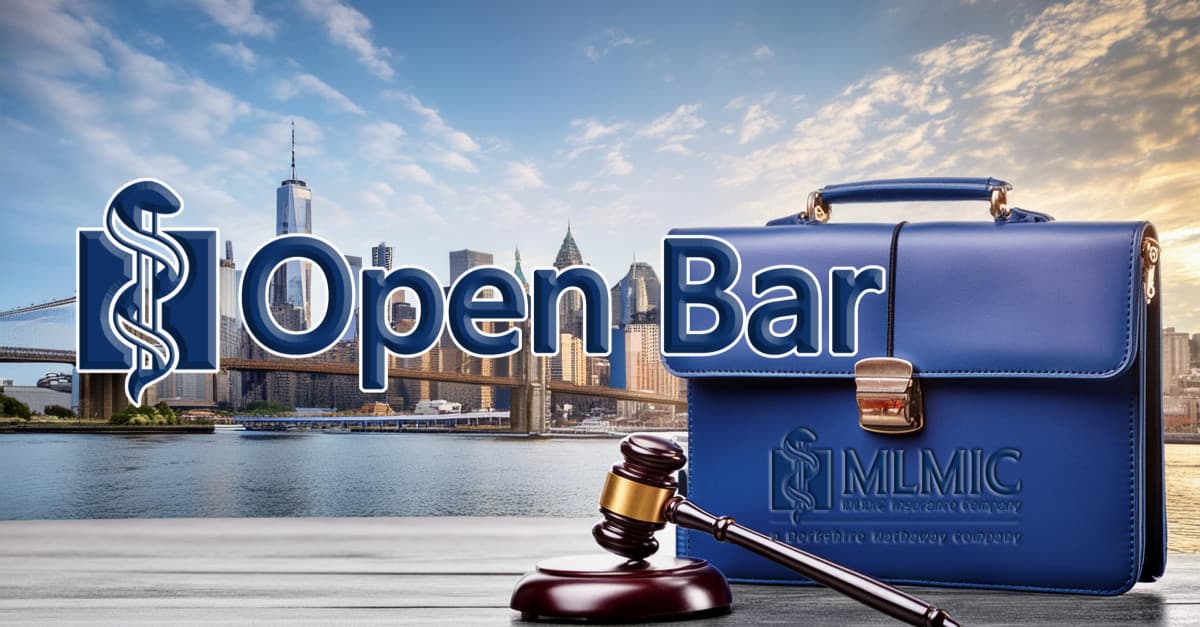< Back to Publications & Resources
Open Bar: How to Properly Discharge a Difficult Patient from Your Dental Practice

Two of the most common questions we receive from dentists and dental practices are: (1) should we discharge a difficult or noncompliant patient, and (2) how should we appropriately discharge the patient?
The most common reason for discharging a patient is that the patient is a difficult patient. In legal parlance, this is commonly referred to as a serious breakdown or disruption in the dentist-patient relationship. It may arise from disruptive behavior on the telephone or in the office, rude, seductive or abusive behavior directed at providers or staff or conduct in the waiting room that is upsetting to other patients. If this type of conduct occurs, it should be documented, along with documentation of practice advice to the patient that this conduct will not be tolerated. A similar but distinct reason for discharging a patient is noncompliance with your treatment recommendations or failing to keep scheduled appointments. This type of noncompliance should also be documented in the dental chart. These two types of patient misbehavior share the same result: they make it difficult or impossible for the provider to continue to see and effectively treat the patient in the office setting. As such, they often make patient discharge the most reasonable course.
If a decision is made to discharge a patient, we recommend that you advise the patient in writing of the discharge, retaining a copy of the discharge letter in your chart. While it is not required that you state the reason for the discharge, we recommend that you include a simple statement of the reason, such as for noncompliance or a serious breakdown of the dentist-patient relationship. While also not mandated, we recommend advising the patient that you will continue to provide emergency care for 30 days from the date of the discharge letter. This 30-day period gives the patient time to locate another provider and demonstrates that you are not abandoning the patient without giving them the opportunity to transfer care. If the patient requests emergency care during the 30-day period, it is within your dental judgment to determine whether the patient has a truly emergent condition requiring care.
We also recommend giving the patient medication refills to carry the patient through transfer to another practice. This may be a 30-day supply or may require a different amount of medication depending on the availability of other providers in your community, the need for the medication and your judgment as to what is reasonable. Finally, we recommend that you advise the patient of the need for continuing care and the importance of continuing their care with a new dentist of their choice. You may offer the number for the local or state dental/dental society to obtain the names of other providers. If you choose to refer the patient to other providers by name, we recommend giving the patient a list of at least three providers so that you are not directing them to any particular provider.
Once a patient has been discharged, you should make certain that your staff is aware of the patient’s discharge so that another appointment for care is not inadvertently given. If an appointment is given or non-emergency care is provided after the discharge, the whole discharge process will have to be started anew.
MLMIC policyholders can reach out to our healthcare attorneys to request advice regarding a potential patient discharge and assistance drafting a discharge letter or to ask any other healthcare law inquiries by calling (800) 275-6564 Monday-Friday, 8 a.m.-6 p.m. or by email here.
Our 24/7 hotline is also available for urgent matters after hours at (844) 667-5291 or by emailing hotline@tmglawny.com.
Follow us on LinkedIn or Twitter to stay in the loop about the medical professional liability industry.
If you are not already a MLMIC insured, learn more about us here.
This document is for general purposes only and should not be construed as dental or legal advice. This document is not comprehensive and does not cover all possible factual circumstances. Because the facts applicable to your situation may vary, or the laws applicable in your jurisdiction may differ, please contact your attorney or other professional advisors for any questions related to legal, dental or professional obligations, the applicable state or federal laws or other professional questions.



